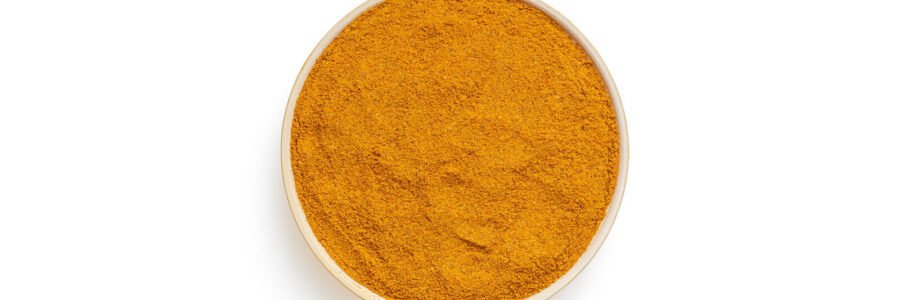Turmeric, the bright gold spice that forms the backbone of curry powder, is a treasure chest of anti-oxidant, anti-bacterial, and anti-inflammatory compounds. The most potent of these compounds is curcumin.
Research Supporting Curcumin’s Skin Benefits
Curcumin research shows that it protects skin by neutralizing free radicals and reducing inflammation. Curcumin treatment also can reduce wound-healing time, improve collagen deposition and increased fibroblast and vascular density in wounds, enhancing both normal and impaired wound-healing.
The National Psoriasis Foundation recommends supplementing with turmeric (curcumin) since research shows turmeric has the ability to alter TNF cytokine expression, which can help minimize flares of psoriasis and accompanying psoriatic arthritis symptoms in some cases.
Curcumin as a Food or Supplement
Curcumin is derived from the turmeric root, which you can sometimes find in the produce section raw. Dried turmeric powder is a mainstay of Indian cuisine and curries. You probably have some in your spice cabinet, but if not, it’s easy to find. You can easily experiment with adding a little here and there to soups, stews, cooked veggies and casseroles. (Tip: a little sprinkle gives a lovely golden color to chicken stocks and broths.)
An easy way to include turmeric in your diet is by enjoying a cup of golden milk:
Soothing Golden Milk Recipe
1 cup of coconut or almond milk
½ tsp. ground turmeric
A pinch of black pepper (black pepper improves the bio-availability of curcumin)
Small piece (1/4’’) ginger root, peeled and grated
Sprinkle of cinnamon and/or cardamom (opt.)
½ tsp. honey or maple syrup, adjust to taste
Mix the above together with a hand whisk and gently warm on the stove, and sip like a hot latte. This is an especially calming drink just before bedtime.
When you purchase turmeric as a spice, or supplements of encapsulated turmeric or curcumin, be sure to find a reputable brand. Unfortunately, testing has found that some cheaper batches of turmeric contain lead or other additives that ben be toxic, canceling out any health benefits.
Topical Curcumin
An old home remedy for skin irritation, including eczema, is to apply a paste of turmeric made from the powder and a little water, milk, and/or oil. It’s applied to inflamed skin, or used as a facial mask to brighten up the skin tone. While anecdotally, some find turmeric paste applications help reduce inflammation or ease itching or pain, there is no research supporting the practice as an effective solution for eczema or TSW.
If you decide to try this remedy, watch out, as turmeric stains everything – clothes, towels, countertops, and skin, with its characteristic gold color. While some people use turmeric in a warm bath, it can stain your tub. That means you’ll have to jump out of the water and immediately clean your tub right away with baking soda or another cleaner, with no guarantee against permanent staining. Not necessarily a relaxing post-bath ritual.
Some commercial skin products also include curcumin as an ingredient. It can be added as an anti-inflammatory therapeutic or used in acne medications as an anti-microbial agent. Sometimes turmeric may be added to lend a natural gold color to the product – which is a great alternative to artificial chemically-based colors.
Curcumin is Herbal Medicine
Curcumin is another example of how herbal medicine can be truly effective and supported by evidence-based research. Since curcumin is an herbal medicine, if you are currently on another herbal medicine protocol for your skin health, be sure to talk with your herbal medicine practitioner before adding high potency curcumin supplements to your diet. Curcumin may work well with your current herbal prescription, or it may be better to use curcumin more sparingly for now until you’re finished with your current herbal regimen.
Want to Learn More About Skin Health?
Click HERE to get the Amethyst Holistic Skin Solutions Newsletter. You’ll receive interesting information about skin health via articles, before/after pictures, case studies of Amethyst patients, videos, interviews and more. Feel free to share this article with someone who you think may benefit.
About the Author
Olivia Hsu Friedman, LAc, Dipl.OM, DACM, Cert. TCMDerm, is the owner of Amethyst Holistic Skin Solutions and treats Acne, Eczema, Psoriasis, and TSW. Olivia treats patients via video conferencing using only herbal medicine. Olivia is Chair of the Board of Directors of the American Society of Acupuncturists, serves on the Advisory Board of LearnSkin, and is a faculty member of the Chicago Integrative Eczema Group sponsored by the National Eczema Association.



